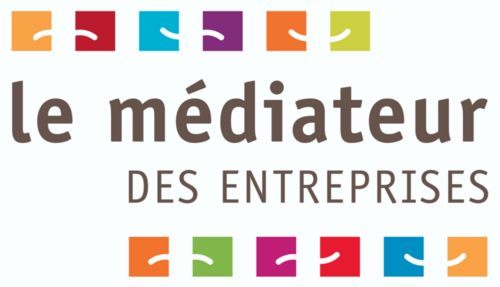Quel est le rôle du médiateur des entreprises ?
La médiation des entreprises a été créée après la crise de 2008 dans l’objectif d’apporter un soutien aux chefs d’entreprise englués dans des conflits avec des donneurs d'ordre qui paient trop tard, des fournisseurs qui ne respectent pas leurs délais, ou d’autres litiges en lien avec la propriété intellectuelle.
Rattaché à Bercy, le MDE aide les parties impliquées dans le conflit à rétablir le dialogue et trouver un compromis satisfaisant.
Sa saisine est simple, gratuite et confidentielle.
Qui peut saisir le MDE et dans quels cas ?
Les principaux bénéficiaires de ce dispositif sont les PME et les TPE qui n’ont pas les moyens de se lancer dans une procédure judiciaire. Toutefois, celui-ci reste accessible à toute entreprise, quelle que soit sa taille, à un acteur public ou une association.
Le médiateur des entreprises peut être saisi pour régler tout problème lié à l’exécution d’un contrat privé ou d’une commande publique.
Dans le contexte de crise sanitaire actuel, il peut s’agir d’un refus de reconnaissance ou de l’utilisation abusive de la force majeure, de difficultés pour obtenir un report de loyer commercial ou encore du non-paiement d’une commande.
Comment saisir le médiateur des entreprises ?
Les entreprises peuvent recourir à ce service en remplissant le formulaire de saisine en ligne du médiateur.
Celui-ci comprend 6 parties à renseigner :
- Le cadre de la saisine
- Les informations sur la société
- L’objet du litige ou du signalement
- Les informations sur l’autre partie impliquée dans le conflit
- Tous les documents jugés utiles au dossier
- La reconnaissance de la confidentialité
Le dispositif est rapide, la médiation met en général moins de 3 mois à aboutir. Dans la plupart des cas, elle débouche sur un accord, qui est ensuite respecté.
MDE : quels sont les avantages pour les entreprises ?
Les entrepreneurs, TPE et PME qui saisissent le MDE peuvent profiter de plusieurs avantages. Outre la rapidité de la procédure, cette voie d’apaisement permet de restaurer une communication de qualité et dans la durée entre les parties. En effet, le médiateur incite à la reprise du dialogue grâce à la compréhension réciproque des problèmes à l’origine du conflit.
Autre avantage : la confidentialité. Alors qu’un procès est en principe public, la médiateur des entreprises est tenu au secret professionnel et aucune information échangée dans ce cadre ne peut être dévoilée sans un commun accord des parties.
Enfin, la médiation est gratuite ce qui n’est pas le cas d’une procédure judiciaire.
